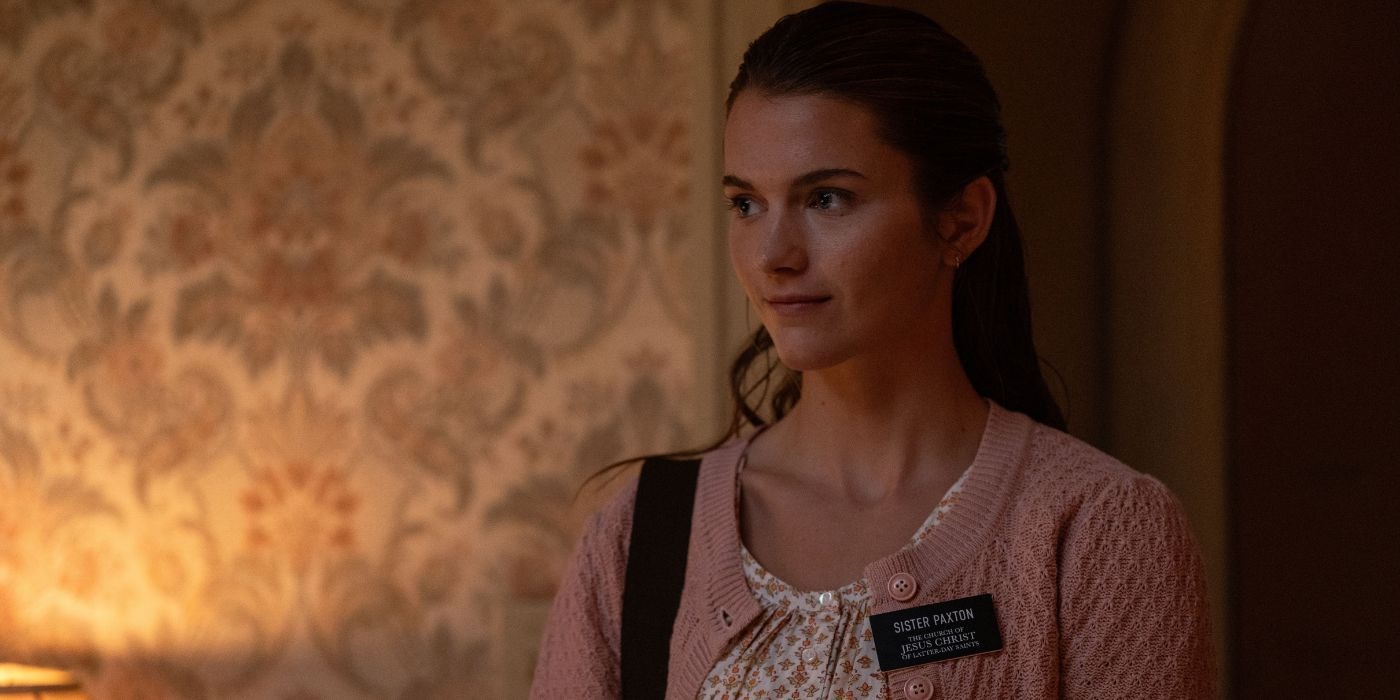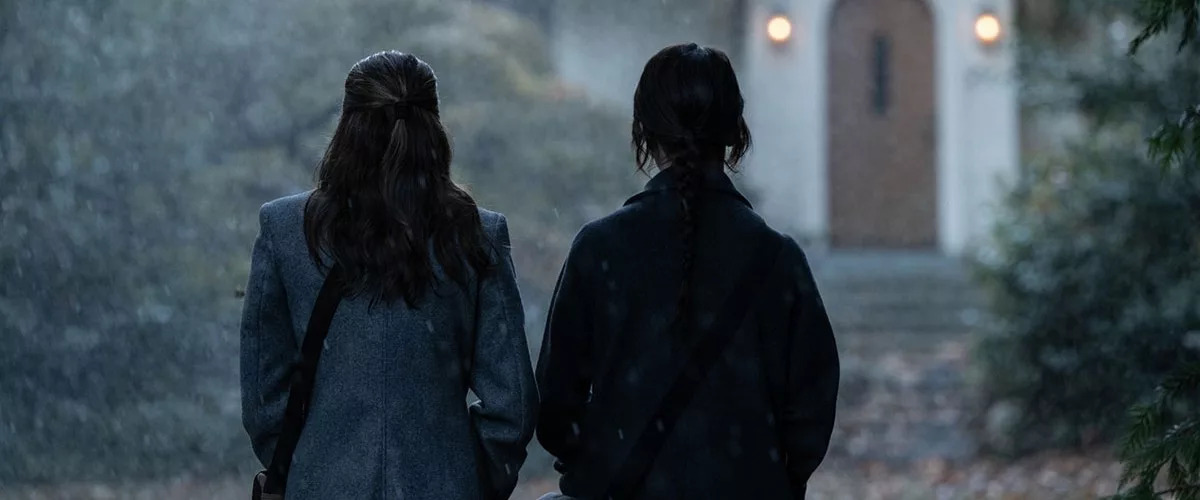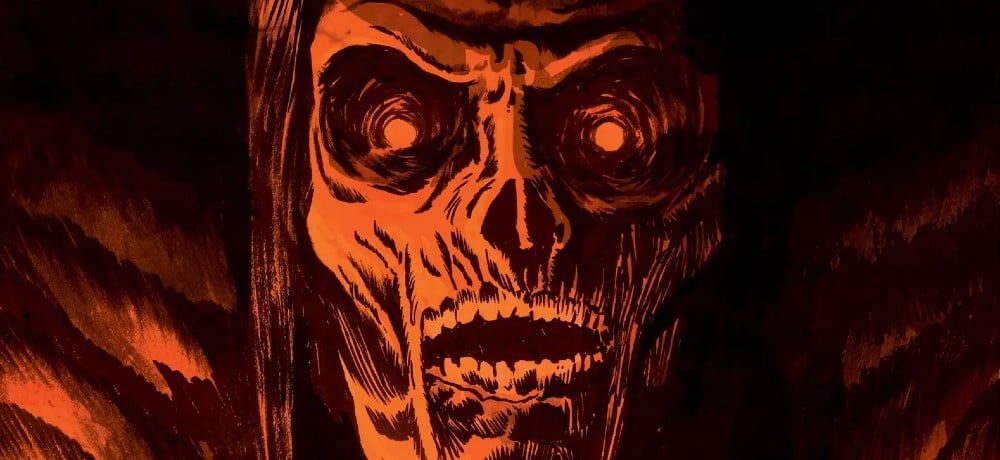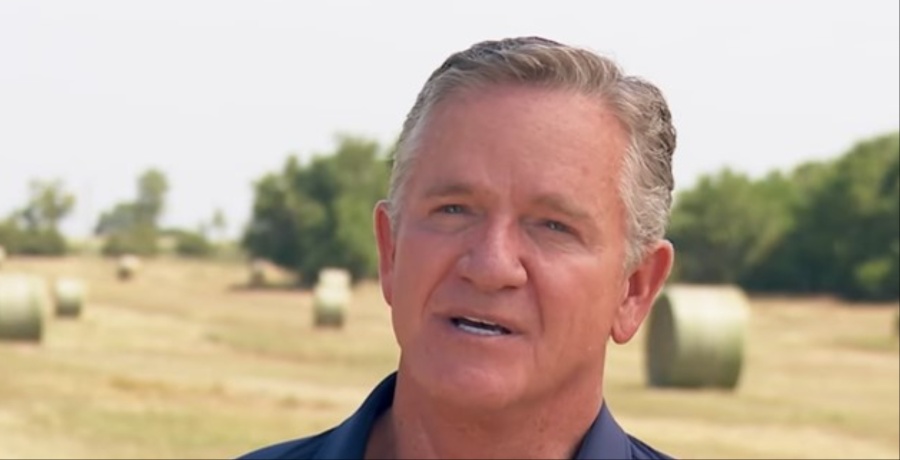
I had an odd feeling going into Scott Beck and Bryan Woods’ Heretic, the latest in an ever-expanding line of A24 horror movies. Post-election anxiety had exhausted me, compounding an already general sense of anxiety plaguing me for the better part of a year. Like all things, it ebbed and flowed, and seeing a new movie—especially a horror movie—often helped. I went into Heretic expecting nothing more than some sinister Hugh Grant and now conventional A24 rug-pulls. I got all of that, of course, but I also left deeply affected by the movie’s undercurrent of kindness. Control is a weapon, but empathy is a shield.
The horror genre regularly reflects the anxieties of the time, and the horror of 2024 is angrier than ever. Smile 2 was a hammer to the cranium, a mean-spirited subversion of trauma horror, a sobering reminder that positive visualization is a lark—your pain is going to hurt. Immaculate and The First Omen were bloodied rebukes of conservative policies, stark reminders of the need for bodily autonomy. Strange Darling was just as cruel (though dripping with lush style), Longlegs… wow. And Under Paris, the straight-to-streaming bloodbath still bludgeoned audiences with worst-case scenario climate pessimism. Which is to say nothing of Terrifier 3. Among them, Heretic’s innate sense of goodness naturally stands out.
Heretic spoilers to follow

Now that’s not to say Heretic isn’t cruel. Heretic is existentially frightening, especially for audience members like myself still regularly reconciling their faith with religious trauma of their own. What really is belief? What value does it yield? In the face of so much cruelty, conceptualized in Heretic via Hugh Grant’s sanctimonious serial killer, does belief in some greater good even matter? Or, as Grant’s Mr. Reed would state, is it simply puffing—bad men have always been in control, and they always will be.
When Sophie Thatcher’s Sister Barnes has her throat slit open or Chloe East’s Sister Paxton stumbles into a room full of emaciated, imprisoned women, Heretic hits hard. It has all the same twisty staging and editing that most elevated A24 horror releases have, and all the gut-punch genre iconography the subgenre brings with it, too. Heretic slithers through dialogue-heavy beats to unnerve, twist the knife, and instill unbearable tension. Never before has a blueberry candle been so terrifying.
Principal photography for Heretic took place between October and November of last year, so while Beck and Woods might have anticipated what the next year might feel like, it’s more than serendipitous that Heretic released when it did. On Twitter, the pair clarified an ambiguous tweet of theirs. Sharing just a script page with the title blacked out in 2022, they wrote, “It’s been an emotional year. Lost a father. Lost some friends. Some hardship, some disappointment. Did something we’ve been threatening to do for years. Put all of our pain and fear into something deeply personal. Just typed ‘The End’ on our next script.”
It’s been an emotional year. Lost a father. Lost some friends. Some hardship, some disappointment. Did something we’ve been threatening to do for years. Put all of our pain and fear into something deeply personal. Just typed “The End” on our next script. pic.twitter.com/WgQ6S5fOrJ
— Beck/Woods (@beckandwoods) October 27, 2022
That pain resonates, but so too does the overarching spirit of community, of shared faith and camaraderie. Despite my own personal misgivings with The Church of Jesus Christ of Latter-day Saints, Heretic never condemns Sister Barnes or Paxton. The film also never quite lets them off the hook, forcing them to confront their faith and the repercussions of promulgating it among the lonely and vulnerable. But Heretic trusts their hearts are pure, misguided though they might be.
Key to the engendered sympathy is Mr. Reed’s posturing as more than just another man desperate for control. Heretic wisely disenfranchises his philosophy toward the end, with Sister Barnes first foreshadowing the thread when she urges Sister Paxton to combat him not with strength, but logic. Challenge him. Call his bluff. It’s why Heretic is ferocious with its words, not its physical horrors (though there’s still plenty of that, slit throats and desperate escapes).
At Heretic’s end, Sister Barnes lies dying, with Sister Paxton ostensibly dead nearby. She challenges Mr. Reed one final time, conceding that while she logically knows prayer yields no power, it’s still nice that people will do it for one another. Her kinship with Sister Barnes is solidified as the latter springs back to life, saving her friend from death with Chekov’s plank before she finally gives in to her injuries. Outside, Sister Paxton briefly sees a butterfly land on her hand. Earlier, she expressed an interest in coming back after death as one to comfort her bereaved loved ones.

The profound friendship at Heretic’s core, and its commitment not to the church’s zealotry, but charity, spotlights the opposite end of the control spectrum. If religion is about control (and, in a lot of ways, it is), and control breeds violence and abuse, then control can similarly overcome those same noxious ideals. Control with love, wield that as a weapon, Heretic claims, and there will be hope in even the darkest moments.
When we center ourselves in others and feel a fundamental duty of care to those around us, there is salvation. Heretic doesn’t proselytize, luckily, and it doesn’t need to. If, as the film claims, all religions are about the same, having their origin in the same space, the label matters less than the actions. Topher Grace (in cameo as Elder Kennedy) is the church in big, bright lights. He’s fundamentally useless, more concerned with brochures and recruitment than his two missing missionaries. Conversely, Heretic’s best moments are the interplay between the two sisters. They augment the other, combatting insecurities and cruel pranks with small, simple words of kindness. A fast food ranking, despite an undercurrent of menace, is some of the purest, kindest riffing the horror genre has seen in years.
Heretic won’t convert you in any formal way—and, again, the film is desperately trying not to—but it will have you considering the church of kindness. My own faith wavers day to day as I try to grapple with a formal, theological education and the subsequent pain and isolation they cultivated in me. What do I believe? Well, I’m not really sure, but I do believe in other people. I believe in the best of what they can do, and I believe, in however small a measurement, that I can help them believe it, too. That’s real power. That’s control worth having.
Categorized:Editorials













:quality(85):upscale()/2024/11/15/946/n/1922564/27581e706737c03acbcbf7.30261735_.png)

















